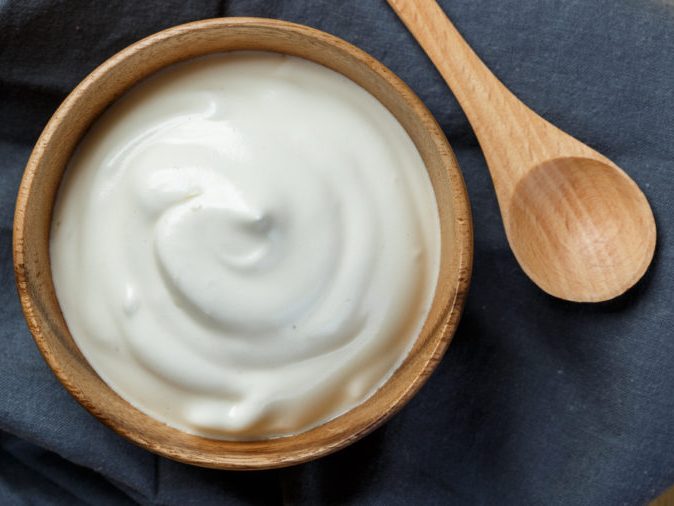
Pop probiotics
Probiotics have become big business in the health world with all eyes focused on how to boost the body’s level of good gut bacteria. Researchers have found that balancing bacteria can ease bloating, according to a review in Alimentary Pharmacology & Therapeutics. You can also consume probiotics through food, like yogurt, or take daily probiotic pills to keep your digestive system regulated and reduce a bloated stomach. However, all good things must be used correctly. A 2018 study out of Georgia’s Augusta University found that when probiotics colonize in the wrong part of the digestive system they can actually exacerbate bloating.
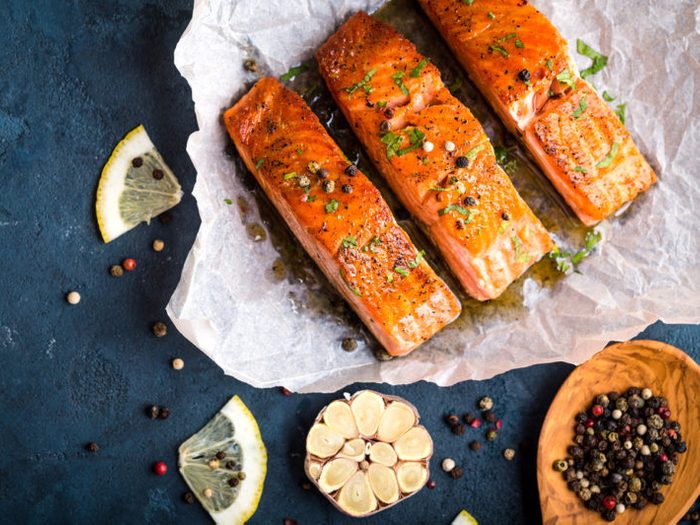
Go on a low-FODMAP diet
If your bloating is chronic, it may be time to make a change in your overall diet. Researchers at Australia’s Monash University developed the FODMAP eating strategy to eliminate certain carbohydrates, including fermentable oligosaccharides, disaccharides, monosaccharides, and polyols. That might sound complicated, but these are found in everyday products that contain lactose, fructose, fructans, galactans, and sugar alcohols. FODMAPs draw extra fluid into the digestive system, which can cause bloating and other digestive problems. In one Kings College London study of 82 people with IBS, those who went on the low-FODMAP diet had 82 percent less bloating. Eliminating or reducing the consumption of FODMAPs can help relieve bloating quickly.
If you’re struggling with bloating, these are the worst foods for your belly.

Drink peppermint tea
Peppermint is a popular herb for easing digestive issues because it contains the active ingredients menthol and menthone, which have antispasmodic and digestive properties. Peppermint also stimulates the secretion of gastric juices and bile to help expel gas, making it a perfect method to beat the bloat fast. According to the University of Michigan Medicine, a combo consisting of 90 mg of peppermint oil plus 50 mg caraway oil in enteric-coated capsules three times daily has been shown to significantly reduce IBS symptoms. Next time you’re feeling bloated, try a cup of peppermint tea.
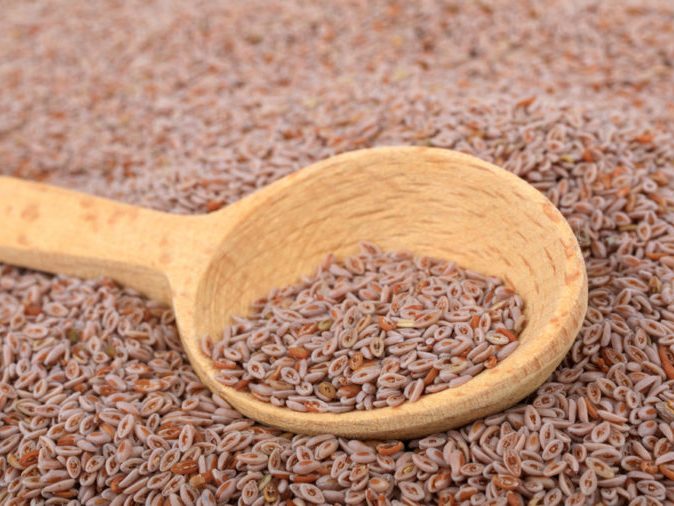
Try psyllium
If you suspect that you’re bloated because of constipation, psyllium may be able to help relieve bloating quickly. Psyllium is an all-natural plant-based laxative found in some over-the-counter medications. Psyllium is particularly effective because the soluble fibre it contains forms a thick gel when it comes into contact with fluids, which in turn can help regulate your digestive system and make yourself not bloated. Psyllium products can be found at supermarkets and health food stores.
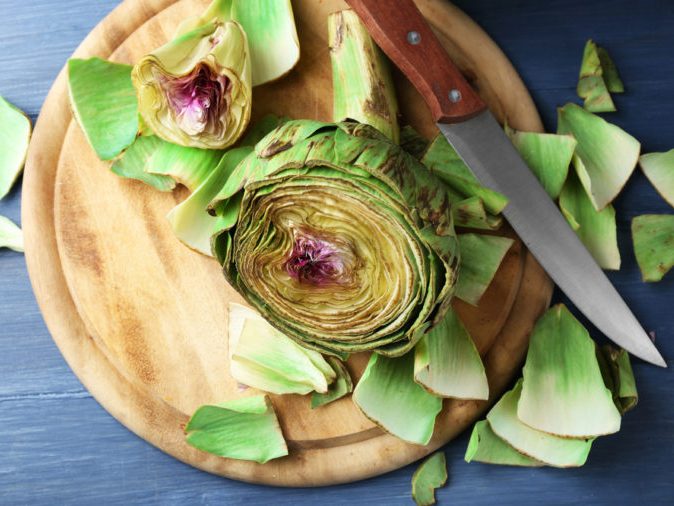
Try artichoke leaf extract
If you’re bloated because you suffer from IBS, artichoke leaf extract has proven to be an effective natural remedy, as it stimulates the release of bile from the gallbladder. This helps break down fat from food, which can help beat bloating that occurs from overeating. Researchers are optimistic that with continued use patients suffering from digestive and bowel problems will see relief, according to a study published in Plant Foods For Human Nutrition.
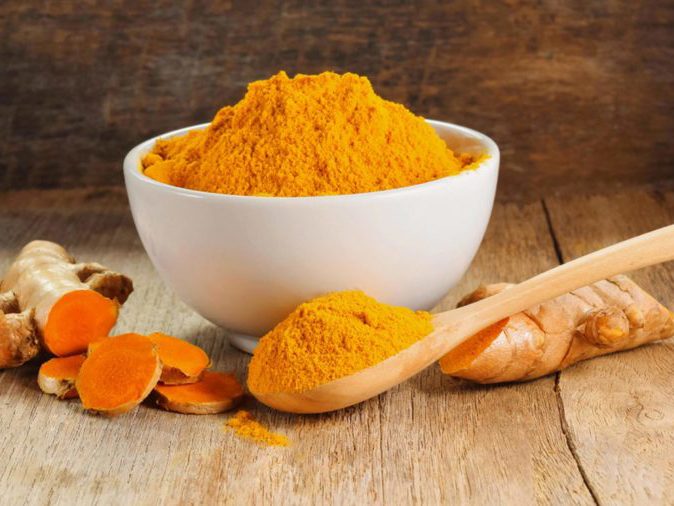
Cook with turmeric
The power of turmeric to relieve bloating quickly comes from the active ingredient curcumin, a fat-soluble antioxidant that gives turmeric its vibrant yellow-orange hue, according to Oregon State University’s Linus Pauling Institute. Though you can take turmeric supplements, the most delicious way to incorporate it into your diet is simply to cook the spice into your food. But visit your doctor immediately if you suspect your bloating might be the result of an ulcer.
Learn when belly bloat is nothing to worry about—and the times you should worry.
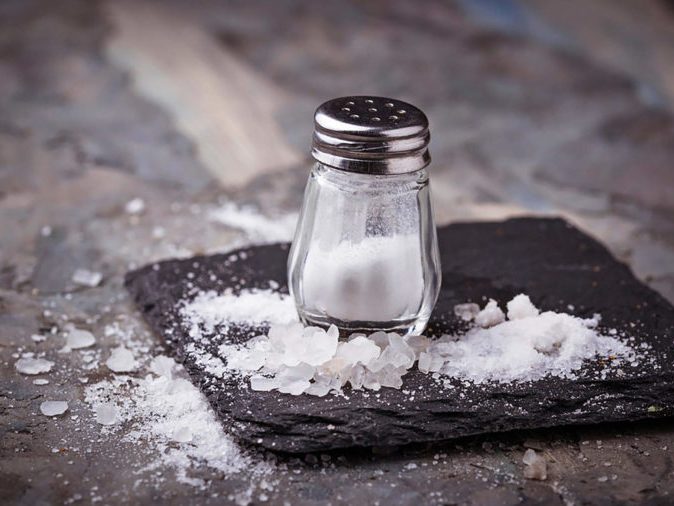
Reduce salt intake
Those fries may be tempting, but sodium causes fluid retention, which is a big reason you might be bloated. That’s because sodium affects the kidneys’ ability to rid the body of fluid and waste, points out experts at the Cleveland Clinic. In general, your body needs around 1,300 to 1,500 mg sodium per day, while someone with a typical North American diet can consume up to 7,000 mg a day. So the next time you feel bloated, stay away from foods with salt and sodium.
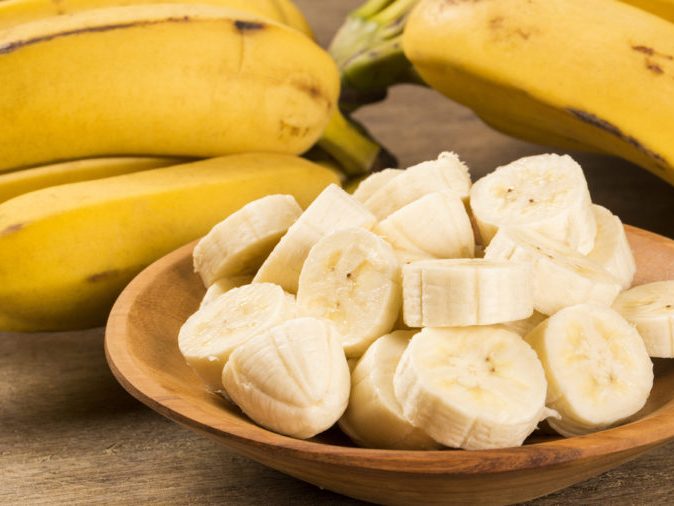
Eat more potassium
Eating potassium is a great bloating remedy, as potassium helps your kidneys flush out excess salt and helps your body maintain fluid balance; also, point out the experts at the OSU Linus Pauling Institute, being low on potassium can cause bloating. Bananas, leafy greens, legumes, and avocados are excellent sources of potassium.

Drink water with lemon
Lemon water may help as a bloating remedy because lemon juice contains potassium. Also, drinking more water, in general, improves digestion, according to research on IBS patients that was published in the World Journal of Gastroenterology: If adding lemon to water encourages you to drink more, that will help ease the tension in your abdomen.
Now that you’ve learned the best at-home stomach bloating remedies, next get a look at some more simple daily habits that can help reduce belly bloat.
